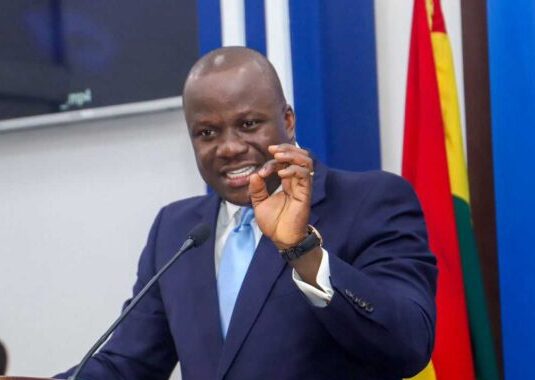The Minority Caucus on the Foreign Affairs Committee of Parliament has condemned the government for abstaining from a vote at the United Nations Human Rights Council (HRC59) regarding the renewal of the mandate of the Independent Expert on Protection against Violence and Discrimination based on Sexual Orientation and Gender Identity (SOGI).
The Caucus described Ghana’s decision as disappointing and a missed opportunity to send a strong signal to the international community about the commitment to Ghanaian family values.
The Ranking Member of the Foreign Affairs Committee, Hon. Samuel A. Jinapor, the MP for Damongo, described the abstention as ‘a sign of the government’s indifference’ to Ghana’s cultural values and its previously stated commitment to upholding Ghanaian family norms.
Also Read: NDC slams NPP’s ‘deceptive’ boycott of Ablekuma North rerun
He argued that the Ministry of Foreign Affairs’ explanation that the vote was merely about protecting LGBTQI persons from violence and discrimination was ‘false’ and a distortion of the actual content of the resolution.
“The question before the Council was whether to extend the mandate of the IE SOGI, which includes the promotion of LGBTQ rights. Several African countries voted against it. Ghana should have done the same,” Jinapor emphasized.
Abu Jinapor accused the government of exhibiting inconsistency and double standards on LGBTQ matters, pointing to its previous public endorsement of the Promotion of Proper Human Sexual Rights and Ghanaian Family Values Bill – popularly known as the Anti-Gay Bill – which has still not been passed into law.
“The government’s failure to lay the Anti-Gay Bill in Parliament and its consistent abstinence from votes relating to LGBTQ is a clear manifestation of its double standards,” he said.
The Minority also took issue with the government’s claim that Chapter Five of Ghana’s Constitution justified the abstention.
According to the Ranking member, nothing in Article 17 supports individual choice of sexual orientation or gender identity. He stressed that fundamental rights are subject to the public interest, and Ghana’s public interest has long been defined by its moral and cultural values.”
He noted that Ghana had previously abstained in 2016 under President John Mahama’s administration and failed to vote in subsequent renewals of the SOGI mandate between 2019 and 2022 when the country was not a member of the Council. With Ghana returning to the Council in January 2024, the Minority expected a firmer stance.
While expressing disapproval of LGBTQ+ activities, the Minority reiterated its opposition to violence or hate but insists that Ghana must remain consistent in defending its norms, values, and traditions, both locally and internationally.
The Independent Expert on SOGI was established by UNHRC Resolution 32/2 in 2016, with a mandate to address violence and discrimination against LGBTQ persons. Ghana’s abstention has reignited debate about the country’s official posture on LGBTQ rights and the long-delayed Anti-Gay Bill currently before Parliament.


